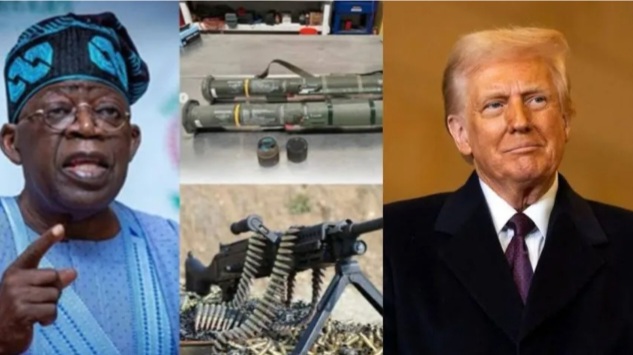
The United States has approved a potential military sale to Nigeria, authorizing the transfer of precision munitions, bombs, and guided rockets worth an estimated $346 million, officials confirmed on Wednesday.
The Defense Security Cooperation Agency (DSCA) in Washington outlined that the Nigerian order would include 1,002 MK-82 500-pound general-purpose bombs, 1,002 MXU-650 aerodynamic assemblies for GBU-12 Paveway II bombs, 515 MXU-1006 assemblies for GBU-58 Paveway II bombs, 1,517 MAU-169 or MAU-209 command groups, 1,002 FMU-152 programmable rockets, and 5,000 Advanced Precision Kill Weapon System II (APKWS II) guided rockets.
Additional components such as FMU-139 rockets, bomb assemblies, practice rockets, and testing equipment are also planned, alongside technical and logistical support.
Washington stated that the sale is intended to strengthen Nigeria’s capacity to counter terrorist organisations and combat illicit trafficking in the Gulf of Guinea, “without altering the regional military balance.”
The DSCA confirmed that designated prime contractors for the deal include RTX Missiles and Defense in Arizona, Lockheed Martin Corporation in Pennsylvania, and BAE Systems in New Hampshire.
“No additional deployment of U.S. personnel is planned for this operation,” the statement said.
This announcement comes amid Nigeria’s ongoing security challenges, particularly in the northern and coastal regions, where terrorist and organised criminal networks remain active.
Officials argue that the acquisition of advanced precision munitions will enhance operational capabilities and provide the Nigerian military with a technological edge in targeted operations.
The sale reflects a broader strategic partnership between Washington and Abuja, demonstrating continued U.S. support for regional security initiatives while aiming to stabilise critical maritime routes and deter illegal trafficking in West Africa.
As the agreement moves forward, implementation and integration of these weapons systems will be closely monitored to ensure compliance with international arms control standards and to maintain the delicate balance of security in the Gulf of Guinea and surrounding regions.



